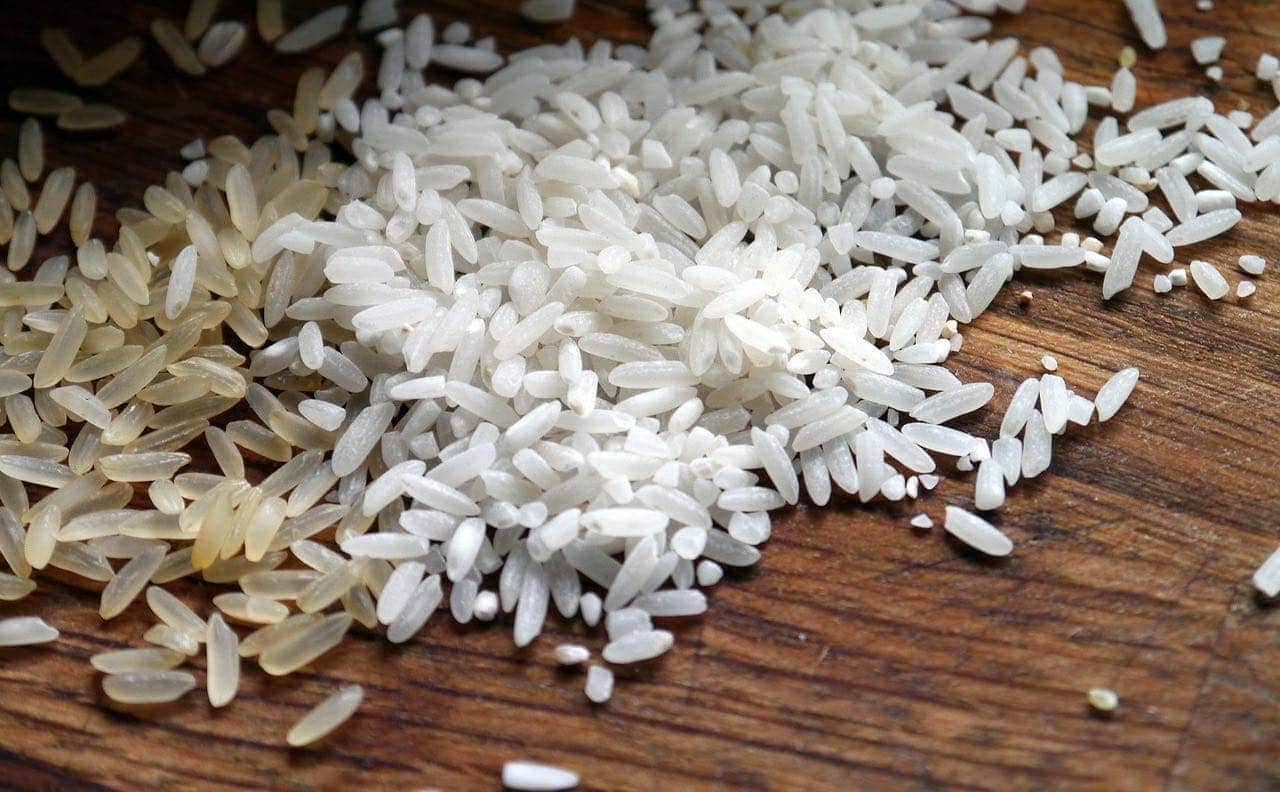Can Hamsters Eat Shrimp? Vet-Approved Facts & FAQ
By Ed Malaker
Updated on
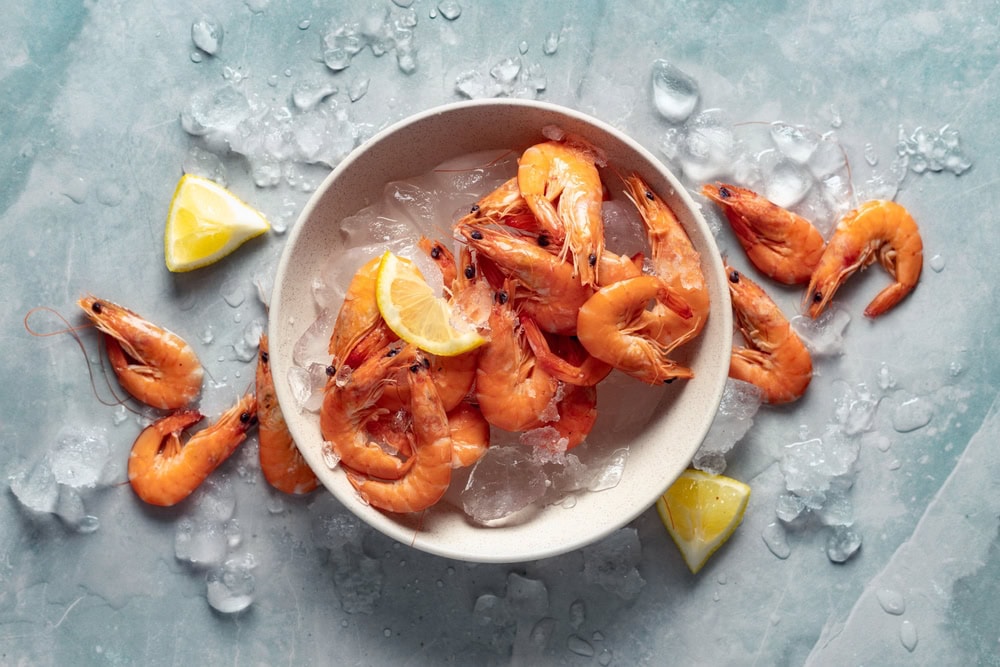
Click to Skip Ahead
Hamsters are great pets for children and adults. They are easy to maintain and not that expensive once you have their habitat set up. While hamsters primarily thrive on a diet of commercial pellets and fresh fruits and vegetables, you may want to add the occasional treat to their diet. One food that you might wonder about is shrimp, which is a popular seafood item that humans eat.
Fortunately, hamsters can safely eat shrimp as they are omnivores. However, this food should be served in moderation, if at all.
Benefits of Feeding Shrimp to a Hamster
There are few health benefits to feeding shrimp. Your hamster’s nutritional needs will be provided by good quality pellet food. It is good to feed them a variety of treats every day but try to offer mostly healthy and nutritious treats.
Protein
Shrimp is a good source of animal protein, which can help with muscle development and overall health in hamsters.
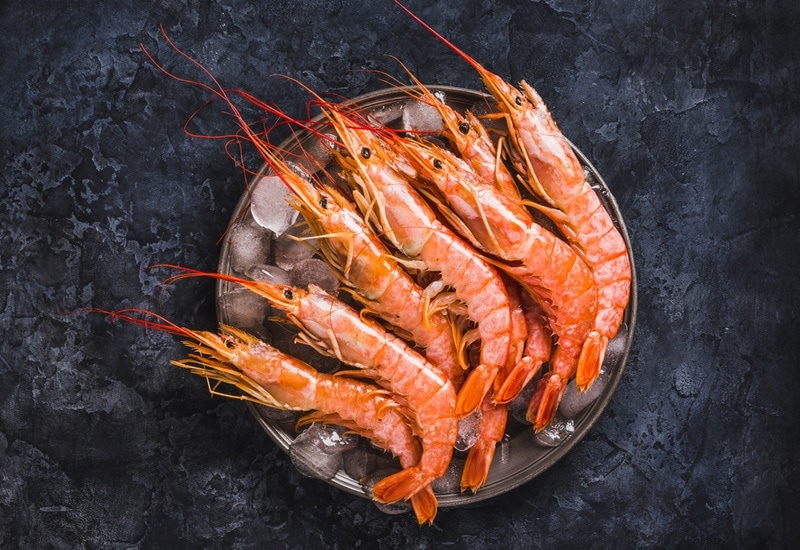
Variety
Offering your hamster different foods in moderation provides enrichment which keeps them happy and healthy.
Bonding
Feeding treats like shrimp to your hamster can be a way to bond with your pet, especially via gentle hand-feeding and interaction.
Potential Dangers of Feeding Shrimp to a Hamster
Shrimp is not toxic however, it’s not healthy either. A little in moderation is ok, but it’s not something we really encourage too much of.
Choking Hazard
Shrimp can have small, sharp parts such as the legs and shell, especially if not properly cleaned and prepared. These parts can pose a choking hazard to your hamster due to their small mouth. They can also get stuck in the cheek pouches and potentially cause infections. Cut the shrimp into small, bite-sized pieces, and remove any sharp or hard parts before feeding it to your pet.

Bacteria
Raw or undercooked shrimp can contain harmful bacteria, such as Salmonella, which can make your hamster sick. Always cook shrimp thoroughly before offering it to your pet (but don’t use any oils, salt, or seasonings). Additionally, ensure that the shrimp is fresh and not past its expiration date.
Nutritionally Lacking
Overfeeding shrimp to a hamster or making it a regular part of their diet can lead to an imbalanced diet, as shrimp lacks the essential nutrients that hamsters need, which can result in nutritional deficiencies over time. It is also high in fat and can lead to weight gain and obesity over time.
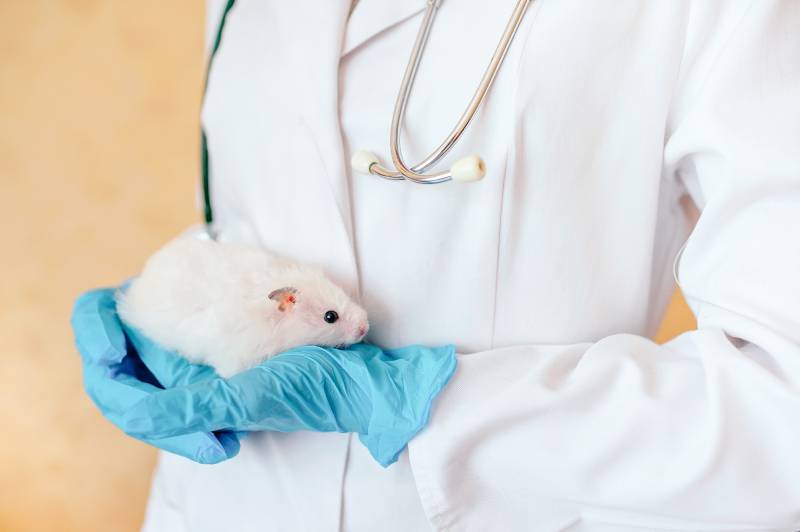
Mercury
Shrimp contains a small amount of mercury. While the mercury in one shrimp won’t do any harm, too much over time could lead to health problems.
How to Feed Shrimp to a Hamster
- Select fresh or frozen, high-quality shrimp for your hamster. Avoid shrimp that looks discolored, has an unpleasant odor, or is past its expiration date. Use only plain, unseasoned shrimp without any added spices or sauces.
- Clean the shrimp thoroughly, and remove the shells and sharp or hard parts. Hamsters have small mouths and delicate digestive systems, so it’s crucial to eliminate any potential Cut the shrimp into small, bite-sized pieces to make it easier for your hamster to eat.
- Cook the shrimp thoroughly so there is no pink or translucent flesh remaining, to eliminate the risk of harmful bacteria. You can either boil or steam the shrimp; don’t add any salt, oil, or seasoning.
- After cooking, let the shrimp cool down to room temperature or slightly below before offering it to your hamster. Hot food can cause burns or discomfort to your pet.
- When offering the shrimp, remove any uneaten shrimp to avoid spoilage.
- Shrimp should be an occasional treat in your hamster’s diet, not a regular meal. Offer a small piece of shrimp as a snack.
- Adverse reactions to shrimp are possible but unlikely. Keep a close eye on your hamster after introducing shrimp to their diet, looking for any signs of an allergic reaction, such as itching or swelling, or digestive issues like diarrhea or stomach discomfort. Discontinue feeding the food, and contact a vet immediately if you notice anything.
- Ensure that your hamster has access to fresh, clean water. Water is crucial for their overall health and digestion, and shrimp can be inherently salty, so your hamster may need extra after eating it.
- If you have any concerns about feeding shrimp to your hamster or if your hamster experiences any adverse reactions, consult with a veterinarian specializing in small animals or exotic pets.
Frequently Asked Questions (FAQ)
Can I Give Frozen Shrimp to My Hamster?
You can feed frozen shrimp to your hamster if it’s thawed, cooked, and prepared correctly with no preservatives or additives.
How Often Can I Feed Shrimp to My Hamster?
Shrimp should be an occasional treat, not a regular part of their diet. Once a month or less is an appropriate frequency.
Can Hamsters Eat Canned Shrimp or Seafood Products?
Canned seafood products may contain extra ingredients that aren’t good for hamsters so we don’t recommend this.
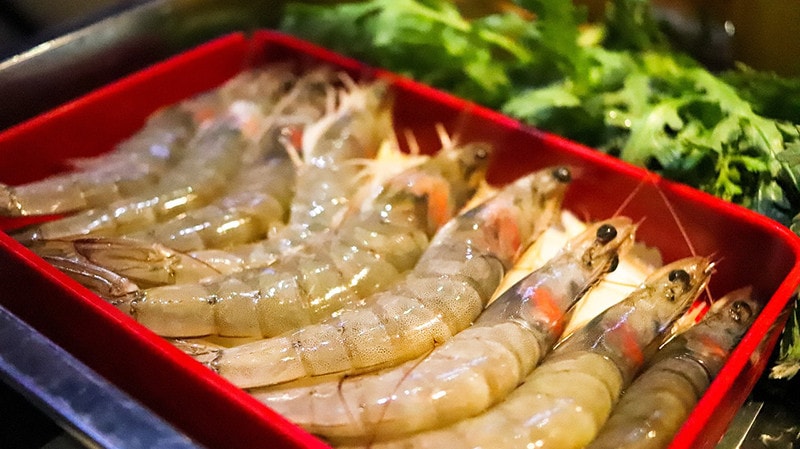
How Much Shrimp Should I Give My Hamster in One Serving?
A small piece, roughly the size of a pea, is typically sufficient for a single serving of shrimp for a hamster.
What Are Alternative Protein Sources for Hamsters?
Safe alternatives to shrimp include dried mealworms, boiled or scrambled eggs, and store-bought hamster treats designed to meet their nutritional needs.
Summary
Hamsters can eat a very small amount of shrimp safely as a treat, but they’re not missing out if you choose not to include this food in their diet. It adds variety to their diet and can keep them interested in eating while giving you a chance to bond with your pet. However, it is also high in fat and can be a choking hazard if you don’t prepare it properly by removing the shell and any hard or sharp parts. Cooking the shrimp will kill off dangerous bacteria, and cutting it into small pieces will make it easier for your hamster to consume.
See Also: Can Hamsters Eat Turkey? Vet Approved Facts & Nutrition Guide
Featured Image Credit: KucherAV, Shutterstock



